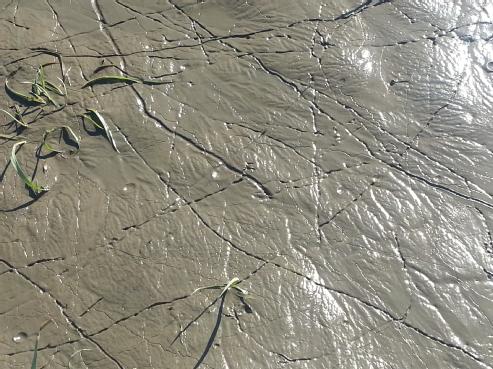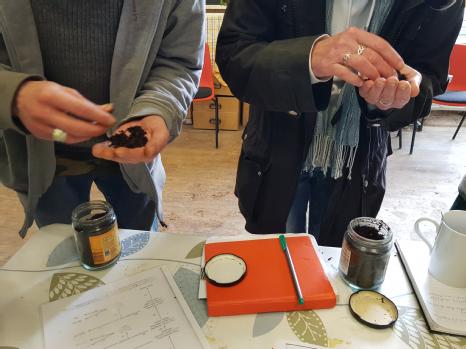Dr María Puig de la Bellacasa, AHRC Leadership Fellowship
Ecological Belongings: Transforming Soil Cultures with Science, Art and Activism
Soils are easy to neglect as we walk upon them, yet they are vital to most of earth's lifeforms. Our abuse of soils as a “resource” is heralding a global soil crisis and bringing new attention to this hidden element of our landscape. Human-soil relations are changing.
Dr Maria Puig de la Bellacasa's AHRC Leadership Fellowship focuses on the cultural aspects of these transformations in the UK. By focusing on our highly industrialised society, she will explore how new ecological cultures are taking shape in response to a crisis of relations with non-human nature.
Traditionally, our dependency on soils for agriculture situates them culturally as emblematic of our belonging to place, land, territory and nation.
However, these strong associations have been weakened by industrialisation, urbanisation and globalisation, as well as the rejection of exclusion, xenophobia and nationalism that they have historically supported.
In contrast, this project focuses on nurturing emerging cultural significations of soils in technoscientific societies. The research will move beyond soil's status as a necessary resource, and focus on the increasing social and cultural concerns for human participation and dependency on ecological processes.
Embracing soil's cultural ambivalence as a repository of memory (both material and spiritual), the research will seek new understandings of contemporary relations with soil. This will help deliver insights into the study of emerging ecological cultures and generate new narratives that connect soil’s cultural and ecological significance to engage with today's environmental crisis.

Worm memories.

Community soil workshop.
Through her Fellowship, Dr Puig de la Bellacasa and her team will combine ethnographic fieldwork and interdisciplinary engagement activities. These will include including art-research interventions and soil storytelling workshops with participants. The team will explore soil cultures developing in scientific, activist and artistic practices.
One outcome of the activities will be to collectively and creatively generate new narratives in the form of stories (generated in the research and workshops) and visual illustrations (by the Artist in Residence) aimed at accounting of new ecological relations with the soil and to be published as fanzines for inexpensive para-academic dissemination.
Dr Puig de la Bellacasa will lead the project in collaboration with Lucy Michaels as Research Associate, and Nic Vaas as the project's Artist in Residence.
